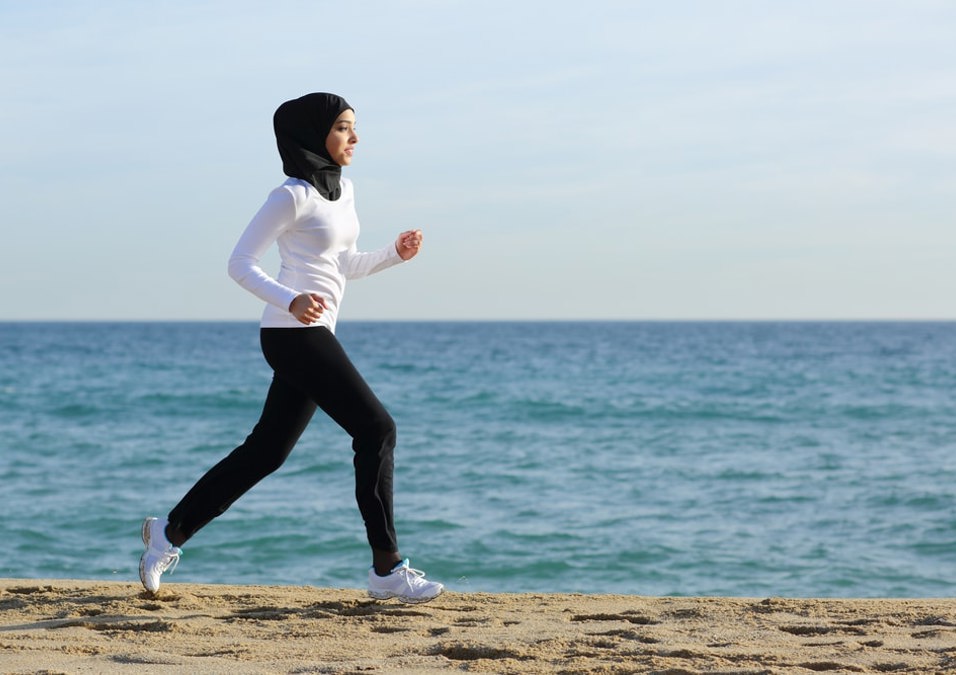The opinions shared in the GymNation blog articles are solely those of the respective authors and may not represent the perspectives of GymNation or any member of the GymNation team
Ramadan Exercise Guide: Which Workout Suits You Best?

SIGN UP FOR YOUR FREE DAY PASS TODAY!
Maintaining a regular exercise schedule during Ramadan can be challenging, particularly due to disrupted sleep patterns and reduced fluid intake.
Read more: HEALTHY TIPS FOR RAMADAN FASTING
During the 30-day fasting period, maintaining fitness and health goals may pose a challenge, as noted by Aadil Baksh, a personal trainer at Ultimate Performance Dubai.
The prolonged fasting without food or water can significantly stress the body.
However, with strategic planning and expert training guidance, it is possible to safely and effectively achieve weight loss or muscle building goals during Ramadan.
Here are some key things to keep in mind.
What's the Best Workout for You?
"When exercising during Ramadan, the key is to stimulate, not exhaust. It's crucial to adopt a more controlled approach to training while fasting," advises Baksh.
As an individual who observes fasting himself, Ahmed ElSayed, a personal trainer at Fitness First, emphasizes three fundamental elements in each workout: strength training, cardio, and flexibility.
"I prioritize muscular strength because a decline in muscle mass can decelerate metabolism.
The objective should be to prevent both muscle loss and a decrease in metabolic rate," he explains.
"For cardio, I suggest a low-intensity session, limited to 30 minutes of slow, steady distance, every other day.
Keep in mind that dehydration is a factor, leading your body to utilize fat stores as an energy source, particularly if you engage in cardio before iftar.
However, being in a depleted state may cause a drop in blood pressure before or after, so ensure you do not skip warm-up and cool-down routines," ElSayed recommends.
"Likewise, when commencing resistance training, focus on exercises that target the upper body before the lower body to prevent fluctuations in blood pressure during or post-workout.
Lastly, emphasize flexibility to avert any mobility issues you may encounter, especially when returning to regular exercise post-Ramadan and Eid."
The best time to work out
Exercising under the mid-day sun and without fluids from sunrise to sunset can jeopardize your health if you overexert yourself.
It is advisable to avoid vigorous cardio and heavy weight training workouts while fasting. Limit your routine to two cardio sessions per week during the holy month.
Baksh suggests working out in the early morning; if that's not feasible, he recommends exercising after iftar.
"Training in the morning is ideal during Ramadan post your first meal," he advises.
"If this timing doesn't suit you, hit the gym after your first substantial meal following iftar to ensure your body is well-fueled for optimal recovery."
Clinical nutritionist Dr. Mona Mobarak notes that exercising on an empty stomach during fasting is challenging, so it's crucial to determine the safest and most sustainable workout schedule.
"I recommend engaging in strength training before iftar, but if you prefer post-iftar workouts, aim for a light meal before exercising and save your largest meal for after your session to avoid discomfort," she suggests.
Mobarak also suggests cutting down the time of usual workouts by 15 minutes to limit stress on the body.
So, if you usually work out for 60 minutes, limit yourself to 45 minutes instead.
“Don’t feel you have to spend hours in the gym for an effective workout session,” Baksh adds.
“You can get a lot done in 45 minutes if you train hard and with intensity.
If your long-term goal is building muscle, an option during Ramadan could be to lower the load and add more sets to maintain muscle mass.”
ElSayed suggests routines based on the time of day when working out during Ramadan:
90 minutes before sunset
A light workout during the cooler part of the day means you can soon replenish yourself with water, and reap the benefits of exercising on an empty stomach.
However, any workout done at this time should be low-key with more resistance training, low repetitions and weights, and plenty of stretching. This is also a good time for a short brisk walk or light jog.
After your evening meal
While cardio can be difficult on a full stomach, an hour after iftar is a good time for weight training.
On the days you plan to exercise after your meal, add in a little extra food to fuel your body, and ensure you drink plenty of water to rehydrate.
Between 11pm and 2am
For night owls, the best time to work out may be between 11pm and 2am, after your food has had time to settle and your body has fully rehydrated.
If you have managed to get some rest in the afternoon, exercising at this time can be favourable, as it is cooler than the daytime, and will still leave you with a few hours of sleep before you wake up to start the day.
Between 3am and 4am
For early risers, the best time to work out may be before your morning suhoor.
This way, you will have energy from the previous night's meal, yet be on an empty stomach. You can hydrate while you exercise and once you are done, eat again to refuel.
This method will also get you energised for the day ahead.
Source: thenationalnews
GET YOUR FREE TRIAL TODAY

















































































